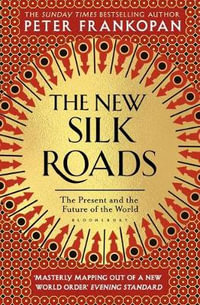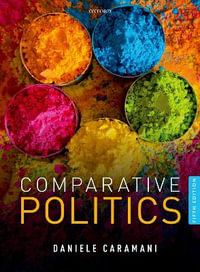There is a long history of state governments providing support to nonstate armed groups fighting battles in other countries. Examples include Syria's aid to Hamas, Ecuador's support for FARC, and Libya's donation of arms to the IRA. What motivates states to do this? And why would rebel groups align themselves with these states?
In States in Disguise, Belgin San-Akca builds a rigorous theoretical framework within which to study the complex and fluid network of relationships between states and rebel groups, including ethnic and religious insurgents, revolutionary groups, and terrorists. She proves that patterns of alliances between armed rebels and modern states are hardly coincidental, but the result of systematic and strategic choices made by both states and rebel groups. San-Akca demonstrates that these alliances are the result of shared conflictual, material and ideational interests, and her theory shows how to understand these ties via the domestic and international environment. Drawing from an original data set of 455 groups, their target states, and supporters over a span of more than sixty years, she explains that states are most likely to support rebel groups when they are confronted with internal and external threats simultaneously, while rebels select strong states and democracies when seeking
outside support. She also shows that states and rebels look to align with one another when they share ethnic, religious and ideological ties. Through its broad chronological sweep, States in Disguise reveals how and why the phenomenon of state and rebel group alliances has evolved over time.
Industry Reviews
"Belgin San-Akca explores the main forms of collaboration and support between states and rebel groups. In a thorough and convincing way, States in Disguise details the many motivations states have for supporting rebel groups and demonstrates that rebel groups exercise considerable autonomy in the process."
--Daniel Byman, Professor in the School of Foreign Service at Georgetown University, and Senior Fellow at the Brookings Institution
"A systematic and innovative analysis of state support for rebel groups that stresses the agency of both sides. Based on an original dataset, the book makes an impressive contribution to understanding these complex and highly consequential relationships as well as to bringing violent non-state actors into the domain of typically state-centric international relations theory."
--Martha Crenshaw, Center for International Security and Cooperation, Stanford University
"External actors are recognized as playing an important role in contemporary civil conflicts, yet agency is often neglected. This book argues convincingly that support must be understood as result of the interaction between rebels, target states, and potential supporting states, motivated by both domestic and external threats, and offers valuable new data on external support relations. It is a must-read for all interested in the transnational dimensions of
civil war."
--Kristian Skrede Gleditsch, University of Esssex
"Shedding valuable light on the shady world of covert state support for rebel groups, this book makes a major contribution to the open-polity perspective on civil war. With admirable conceptual clarity and analytical precision, Belgin San-Akca shows that transnational conflict patterns cannot be reduced to rebels' opportunistic exploitation of state weakness or simple models of proxy warfare. Instead, States in Disguise explains the interaction of strategies
pursued by states and autonomous rebel organizations and how the former support the latter as an common and often crucial, but still unofficial, aspect of international relations."
--Lars-Erik Cederman, author of Emergent Actors in World Politics: How States and Nations Develop and Dissolve
"The significance of States in Disguise exceeds its immediate scope. In fact, the book demonstrates the pressing need to remove barriers between the research of international and of domestic politics. San-Akca provides solid foundations for a research agenda that would bridge the gap in the study of conflicts between the often mutually exclusive lenses of international relations and comparative politics."
--Ami Pedahzur, Perspectives on Politics
























